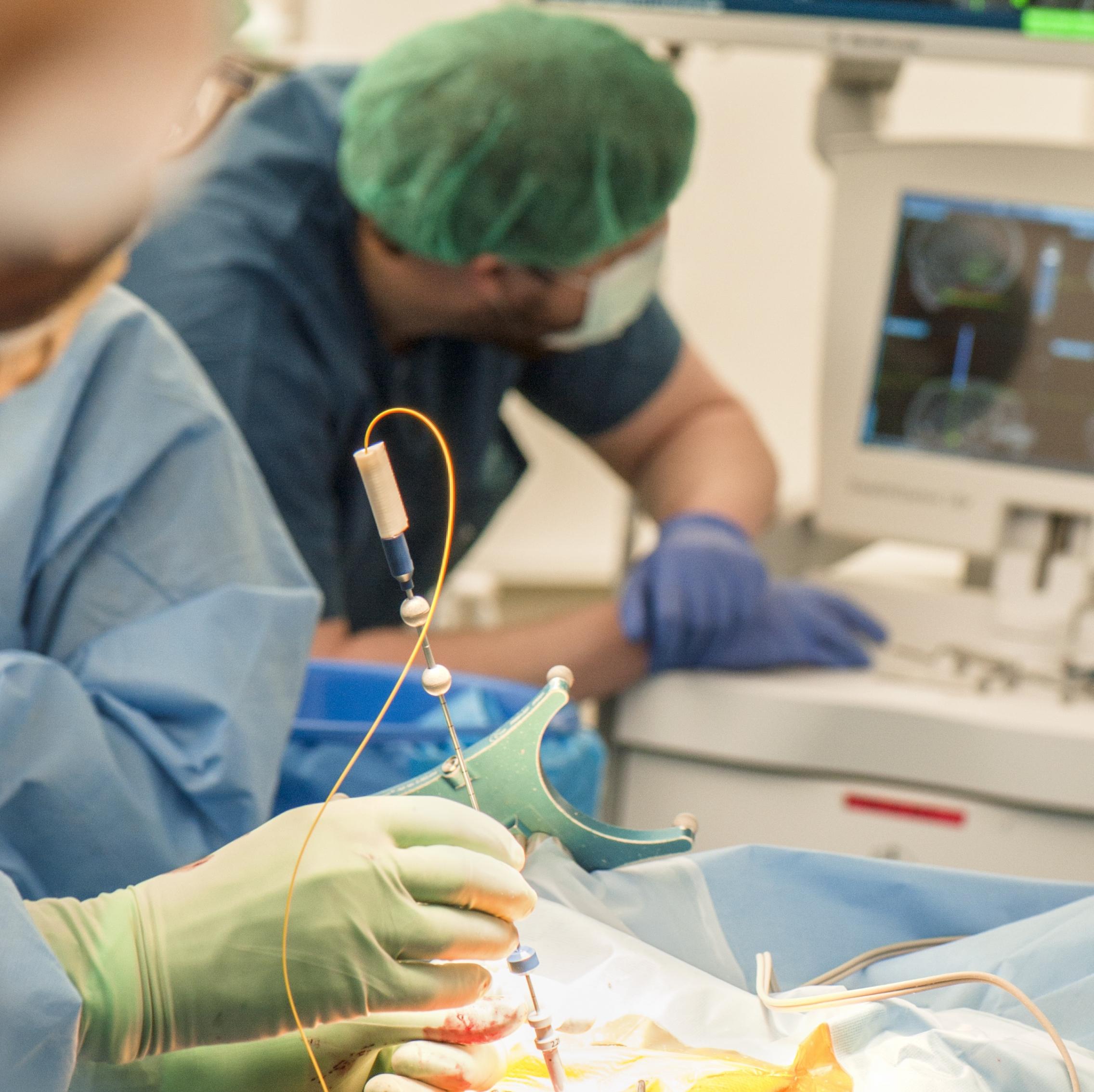Smart needle receives $1mil to make brain surgery safer

Smart needle in surgery, (photo supplied by Sir Charles Gairdner Hospital)
A smart brain biopsy needle for faster and safer neurosurgery has received $1 million from the Australian Government’s BioMedTech Horizons program, operated by MTPConnect.
Brain tumours are the leading cause of cancer-related death in children and have one of the largest disease burdens across all ages because of the high fatality rate. Needle brain biopsies are a standard part of diagnosis. However 2-3% of patients will suffer permanent disability and 1% will die.
Designed by researchers from the University of Adelaide in close collaboration with Australian company Miniprobes, the smart brain biopsy needle can both detect cancer cells and warn neurosurgeons before they hit a blood vessel.
Professor Robert McLaughlin from the University of Adelaide’s Institute for Photonics and Advanced Sensing and Managing Director of Miniprobes said the funding will allow the team to commercialise this technology and bring it into the hospital.
“The smart needle will make brain biopsies safer for patients. At the same time, it will make surgery faster by giving the surgeon a needle that can see where it is going, so they can take the right sample first time,” he said.
“Neurosurgery is expensive. Reducing the time in surgery could save the hospital $5,000 per patient,” explained Prof. McLaughlin. “It’s exciting to work on a project that can both help people and makes commercial sense. The MRFF funding will help to make it a reality.”
Professor Anton Middelberg, Deputy Vice-Chancellor (Research), says the funding was further evidence of the strength of the University of Adelaide’s engagement with real-world needs and the importance of that as a driving factor for research and industry.
“These commercially-led projects are an important way in which our University is giving back into the community and the Australian economy,” he said.
Media Contacts:
Prof. Robert McLaughlin
Chair of Biophotonics
ARC Centre of Excellence for Nanoscale Biophotonics
University of Adelaide
Mobile: +61 (0)400 186 544
Email: robert.mclaughlin@adelaide.edu.au
Elisa Black
Manager – News and Media
The University of Adelaide
Mobile: +61 (0)466 460 959
Email: elisa.black@adelaide.edu.au
